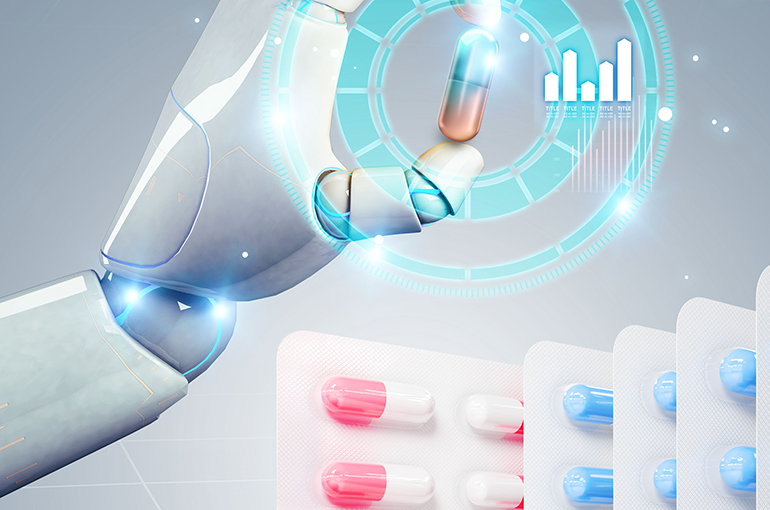 Investors Rekindle Interest in China’s AI Pharma Sector, Though Tangible Results Are Yet to Come
Investors Rekindle Interest in China’s AI Pharma Sector, Though Tangible Results Are Yet to Come(Yicai) June 19 -- The use of artificial intelligence in drug discovery is drawing new investment to China’s pharmaceutical sector, yet the industry still awaits clear proof that these AI technologies can deliver truly transformative results.
Investor sentiment appears to be reviving, with several major deals announced over the past week. These include a fundraiser by Boston-headquartered biotech firm Insilico Medicine and a new partnership between Shijiazhuang-based CSPC Pharmaceutical Group and AstraZeneca.
Insilico, which has filed for an initial public offering in Hong Kong, raised USD123 million in its latest funding round, according to corporate information platform Tianyancha. The funds will be used to enhance the company’s proprietary AI models and algorithms, as well as to upgrade and expand its automated smart lab to further streamline drug research and development.
On June 13, CSPC announced a collaboration with UK-Swedish drug giant AstraZeneca to leverage its AI-powered drug discovery platform. The partnership aims to develop novel oral drug candidates to treat chronic illnesses, with the deal potentially worth up to USD53 billion.
“Securing this level of financing is a very important signal for us,” said Ren Feng, chief scientific officer at Insilico. “It shows that the progress of our AI-driven drug R&D and external collaborations has gained recognition from both new and existing investors.”
Since the release of DeepSeek’s ChatGPT-like R1 large language model in January, Chinese companies have been rapidly embracing AI, Ren noted. While the focus one or two years ago was on building in-house AI capabilities, it has now shifted to achieving tangible results in drug development, he added.
While the financing market has clearly begun to pick up, the new AI methods have so far only provided incremental gains such as predicting drug properties and molecular optimization, rather than any breakthroughs and transformative changes, noted Bai Miao, an executive at an AI drug startup.
Industry insiders agree that the success of AI in drug development increasingly depends on a company’s ability to deliver real-world results like advancing drug pipelines, cutting costs, and improving success rates. Still, the direction appears irreversible.
“Pharmaceutical companies don’t particularly care whether a molecule was designed by a medicinal chemist or AI,” said Feng Xin, an industry veteran. “What matters is the efficacy of the molecule.”
“The future will likely move beyond emphasizing the ‘AI pharma’ label,” said Bai. “Instead, AI will simply be seen as a standard and indispensable part of the R&D process.”
Editor: Emmi Laine